A call to invest in prevention from the UN Women Civil Society Advisory Group
Reflections from the members of the Civil Society Advisory Group of the UN Women Regional Office for the Americas and the Caribbean in commemorating the 16 days of activism against gender-based violence.
Date:
This year, the UNITE campaign calls for investing in preventing violence against women and girls and focuses on the importance of funding prevention strategies to prevent violence from occurring in the first place. This demand calls on all actors in society, especially States, to put this issue at the center of the agenda and public policy.
It is necessary to develop sustained campaigns against gender-based violence, strengthen the organizations that assist victims and survivors, and work with services to ensure that the response is sensitive, efficient, and comprehensive. In 2022, according to ECLAC data for 2023, at least 4,050 women were victims of femicide/feminicide in 28 countries in the region.
In this regard, it is essential to call for funding for grassroots movements and women's, feminist, and civil society organizations, which lead the work on the ground and listen to nd accompany the victims and survivors, with whom we must work permanently to advance in the fight against gender-based violence against women and girls in all their diversity.
UN Women calls upon States to contribute resources to the Regional Fund to Support Women's and Feminist Organizations and Movements in Latin America and the Caribbean to ensure more funding sources reach grassroots organizations.
The following are the testimonies of the UN Women's Civil Society Advisory Group members, in the context of this year's commemoration of the 16 days of activism.
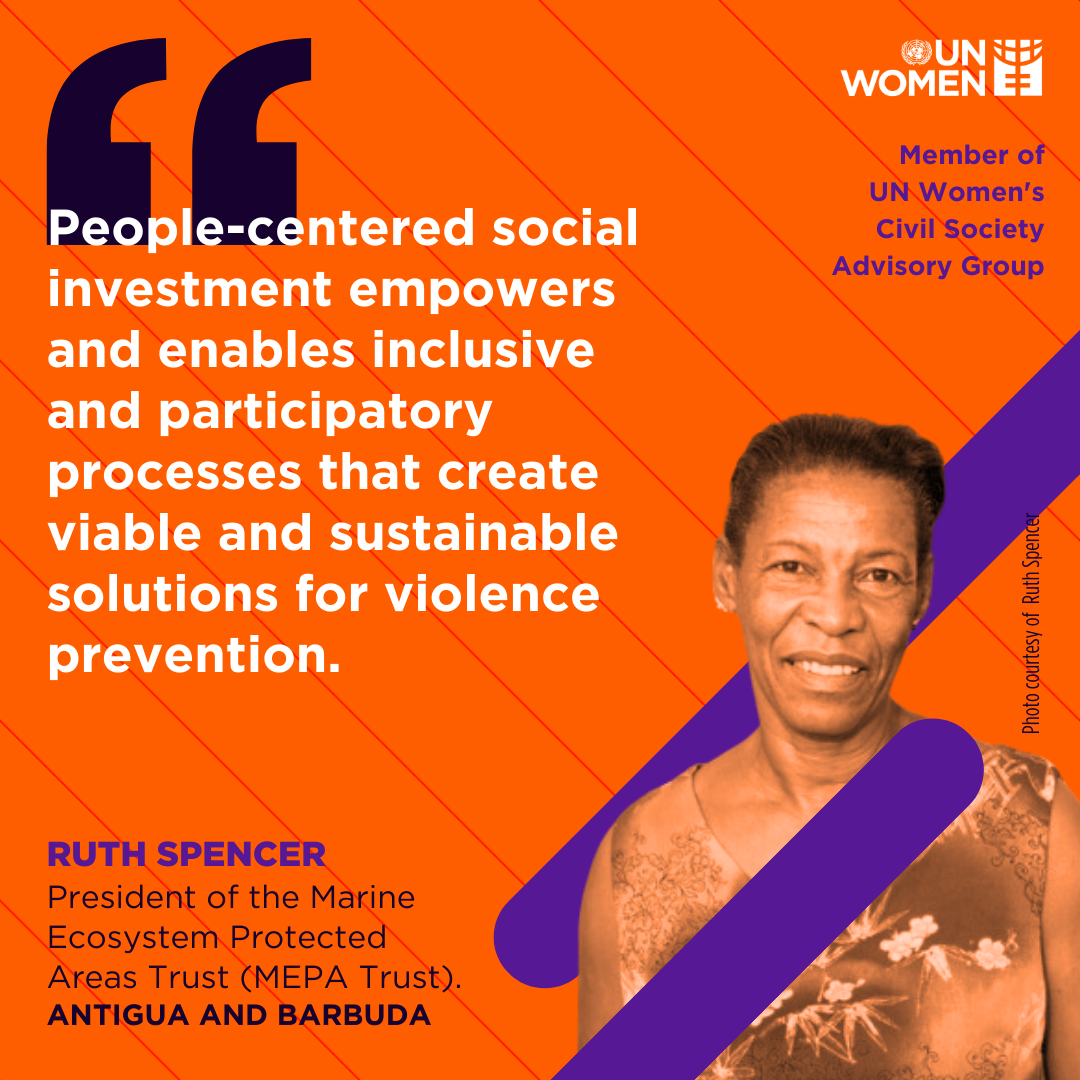
Ruth Spencer, Chair of the Marine Ecosystem Protected Areas Trust (MEPA Trust), Antigua and Barbuda
Social and people-centered investment that empowers, provides and enables inclusive and participatory processes leads to creating workable and sustainable solutions to prevent violence. Many times, the people themselves, if given the opportunity, come up with" outside of the box" ideas that work.
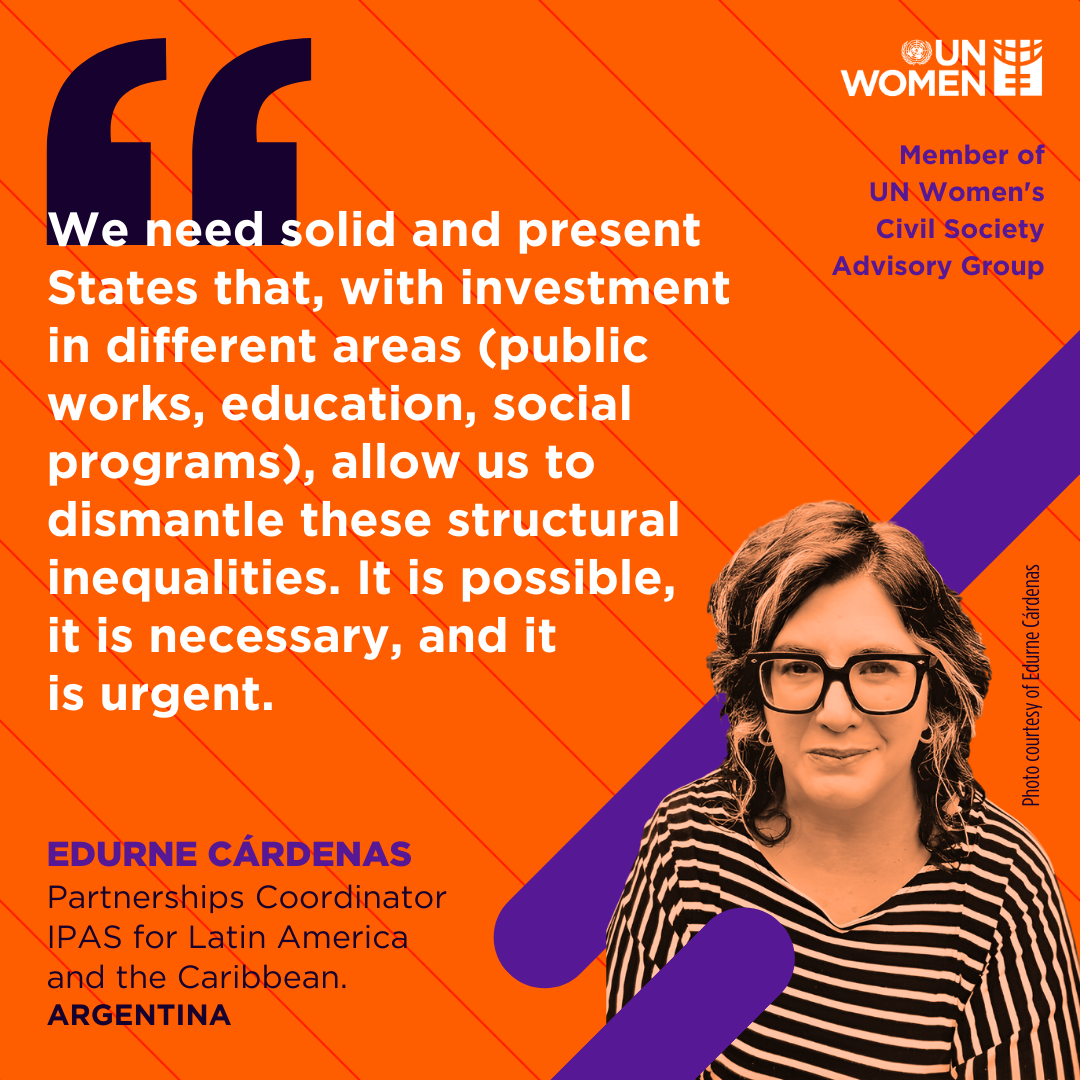
Edurne Cárdenas, Partnerships Coordinator, IPAS for Latin America and the Caribbean, Argentina
Gender-based violence responds to structural patterns of inequality, which is why public and private investment is critical to generating better conditions to prevent and eliminate it. I am convinced that we need solid and present States (national, provincial, and local) that, with investment in different areas (public works, education, social programmes), allow us to dismantle these structural inequalities. It is possible, it is necessary, and it is urgent.
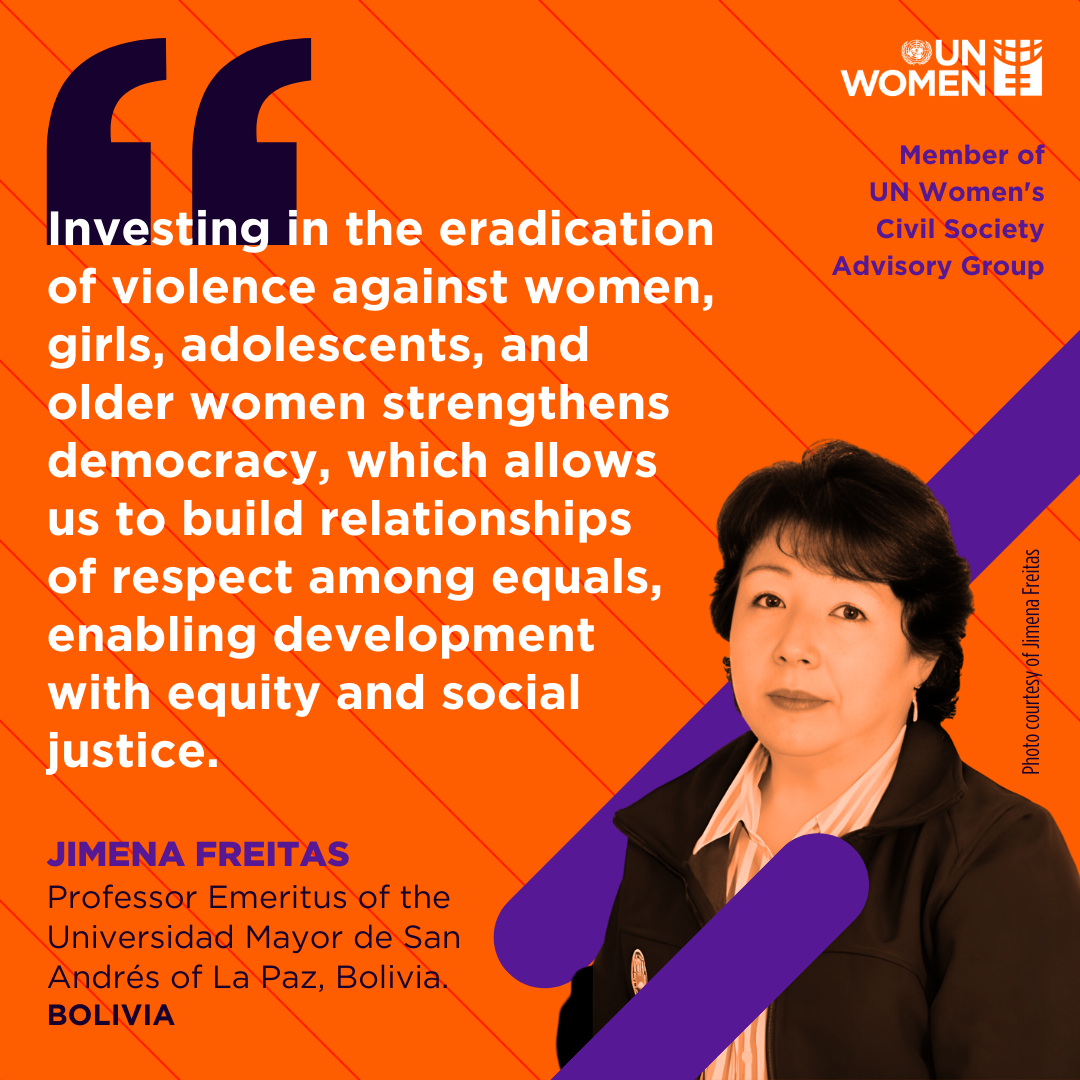
Jimena Freitas, Emeritus Professor, Universidad Mayor de San Andrés de La Paz, Bolivia
Investing in the eradication of violence against women, girls, adolescents, and older women strengthens democracy. It allows for the construction of respectful relationships between equals, making development with equity and social justice possible.
Investing in the support and strengthening of services that guarantee a life without violence for women, girls, adolescents, and older adults makes it possible to reduce the rates of feminicide, infanticide, and all types of violence and, in this way, build relations of peace and equality between genders.
We should have a percentage of the countries' GDP that guarantees and strengthens democracy through care, protection, prevention, and reparation for victims of gender-based violence.
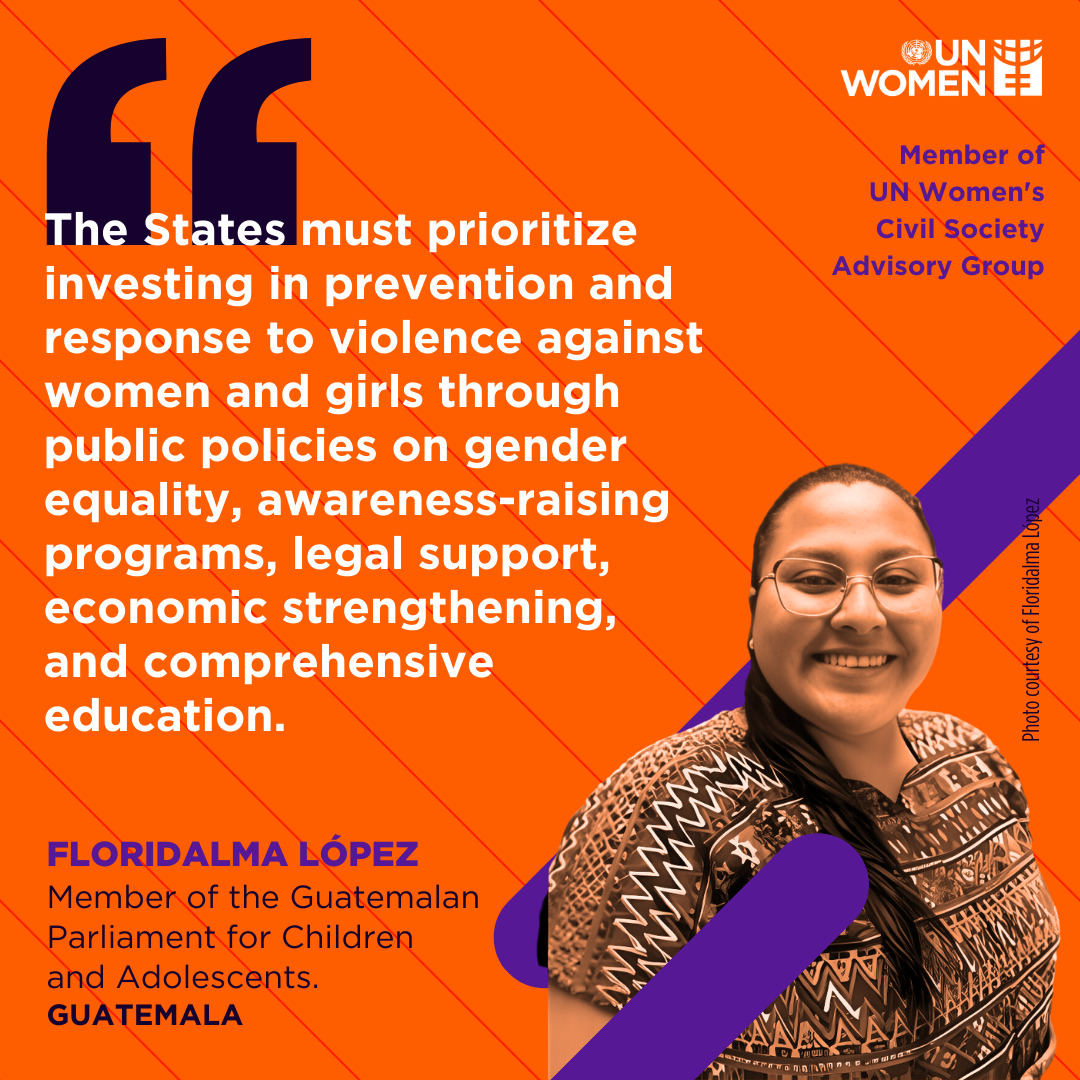
Floridalma López, Member of the Guatemalan Parliament for Children and Adolescents, Guatemala.
Investing in women's empowerment, opportunities, and rights is important to prevent violence because providing the necessary resources can create safe environments for all.
There is a historical debt owed to women and girls, which is why investing in us is essential to prevent violence against women because it is sowing empowerment to harvest safe, just, and dignified environments.
States must prioritize investment in measures to prevent and address violence against women and girls through public policies on gender equality, awareness-raising programmes, legal support, economic strengthening, and comprehensive education.
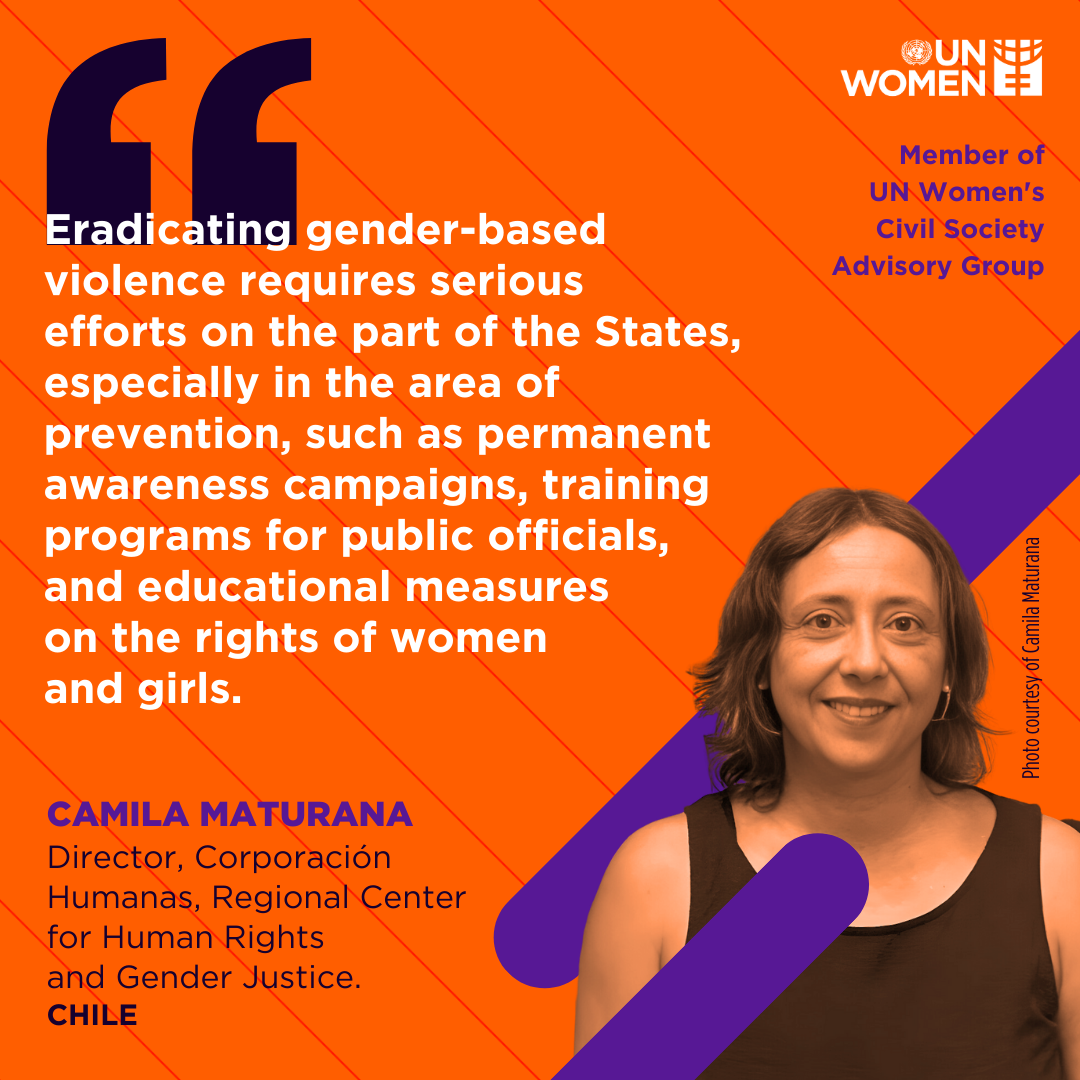
Camila Maturana, Director of Corporación Humanas, Regional Centre for Human Rights and Gender Justice, Chile
Eradicating gender-based violence requires significant efforts by States, especially in prevention, such as permanent awareness-raising campaigns, training programmes for public officials, and educational measures on the rights of women and girls. To this end, States must allocate a budget to finance these actions, as this is a necessary investment to protect women's and girls' lives, integrity, and safety.
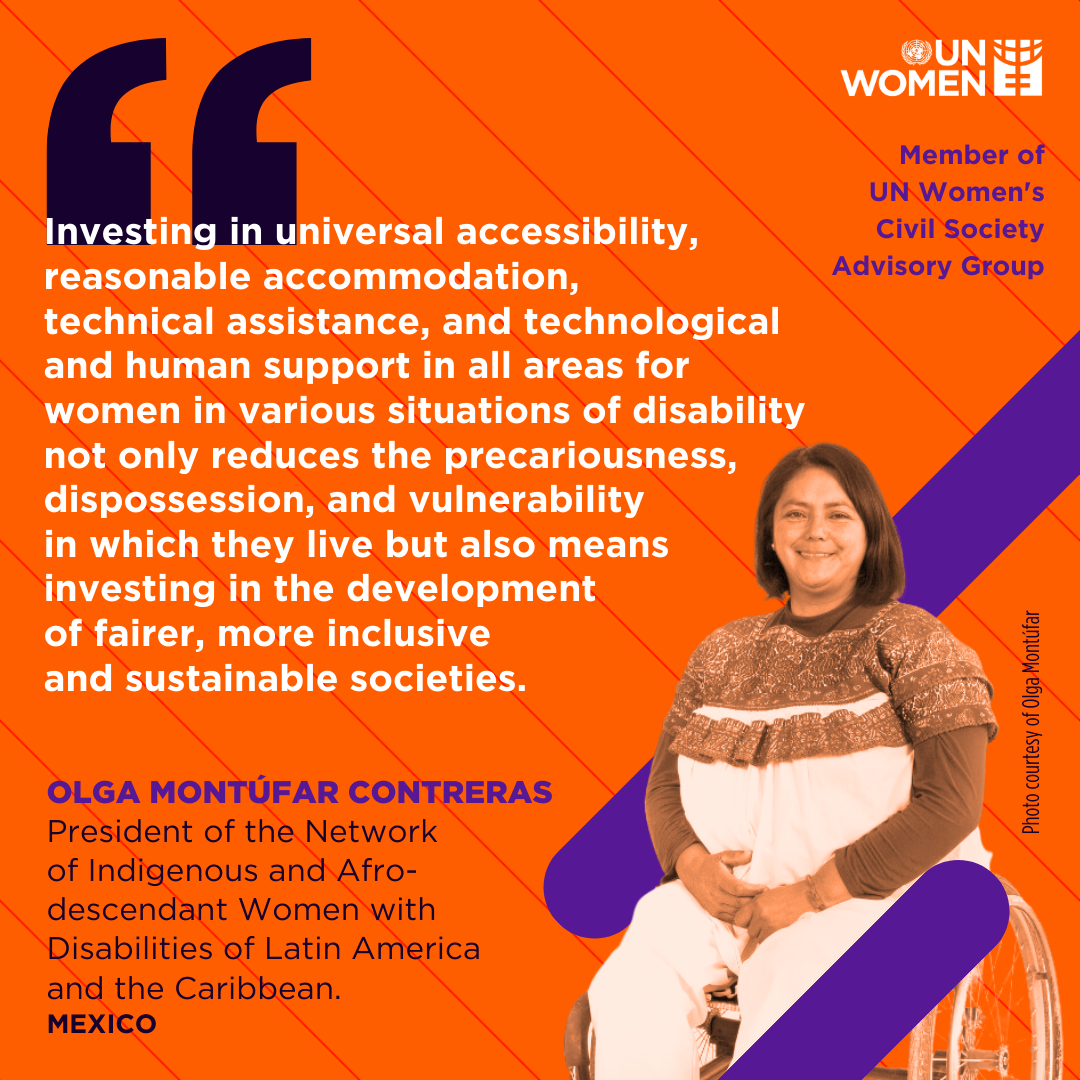
Olga Montúfar Contreras, President of the Network of Indigenous and Afro-descendant Women with Disabilities of Latin America and the Caribbean, Mexico
"Investing in universal accessibility, reasonable accommodation, technical assistance, as well as technological and human support in all areas for women in various situations of disability not only reduces the precariousness, dispossession, and vulnerability in which they live but is also an investment in the development of fairer, more inclusive and sustainable societies."
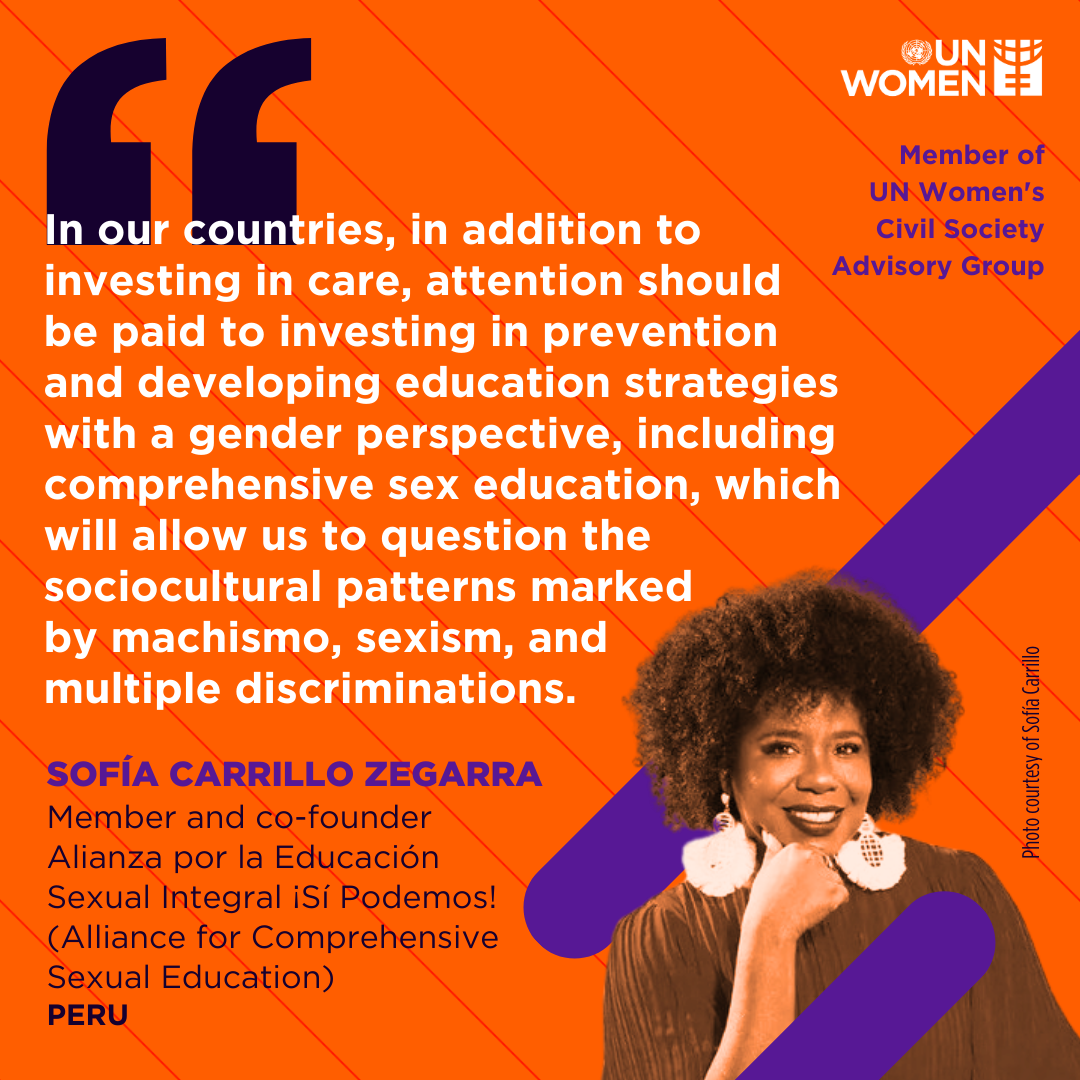
Sofía Carrillo Zegarra, Member and co-founder of Alianza por la Educación Sexual Integral Sí Podemos, Peru.
The main victims of gender-based violence are women in their diversity. It is based on the patriarchal and sexist system of our society, which is why it is necessary that in our countries, in addition to investing in care, we pay the corresponding attention to investing in prevention, developing education strategies with a gender focus, including comprehensive sexual education, which will allow us to question the socio-cultural patterns marked by sexism, sexism, and multiple discriminations.
These strategies must be constructed as public policies with sufficient budgetary allocation, with women in their territories, making them part of the process of change, no longer seeing them only as beneficiaries but recognizing them as subjects of rights and agents of transformation.
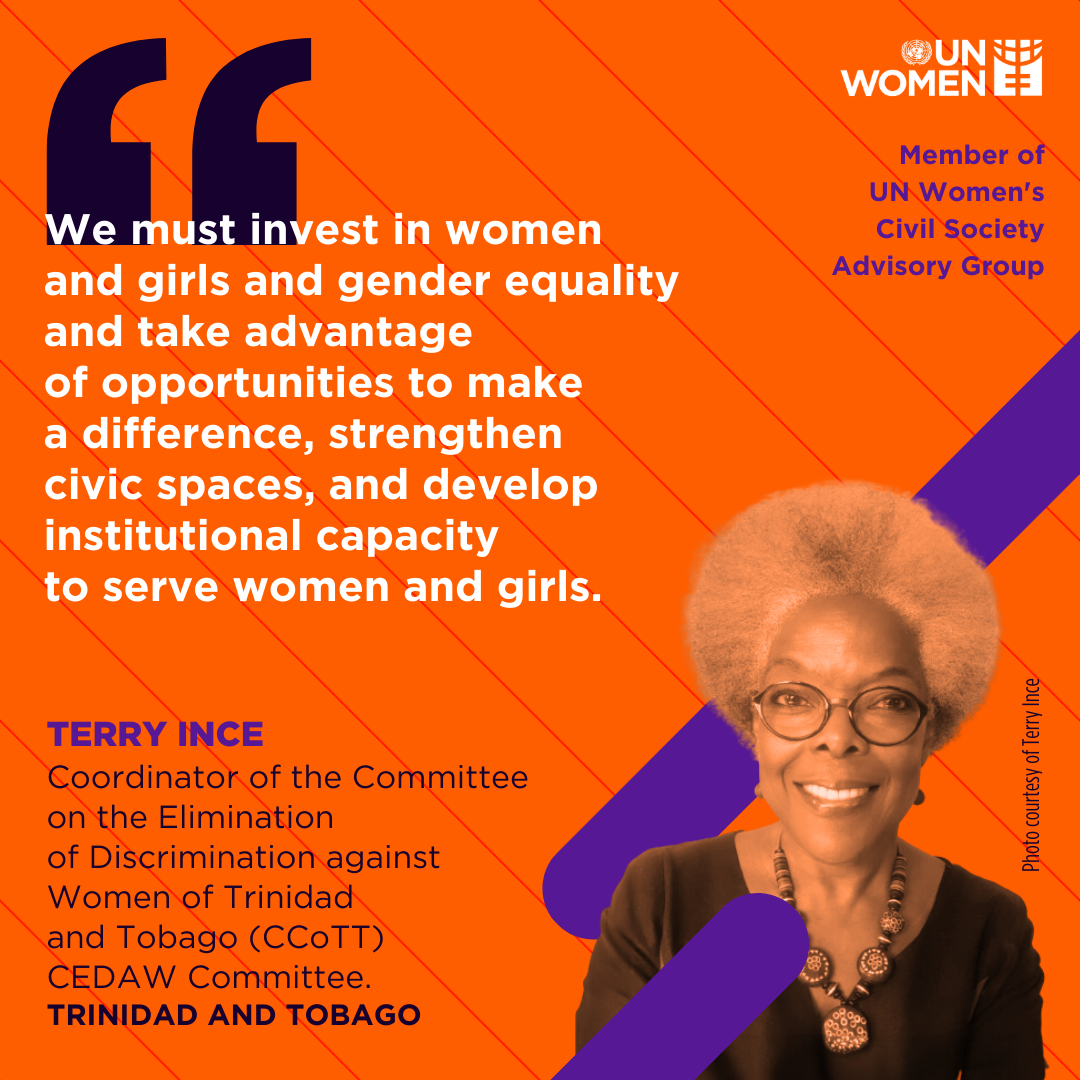
Terry Ince, Coordinator of the Committee on the Elimination of Discrimination against Women, Trinidad and Tobago (CCoTT) CEDAW Committee, Trinidad and Tobago
Violence is learned, systemic, and catastrophic. To prevent violence, we must address the root cause of violence, and to do that, we must invest in women and girls and gender equality and use opportunities to do development differently, strengthen civic spaces, and build the capacity of institutions to deliver for women and girls.